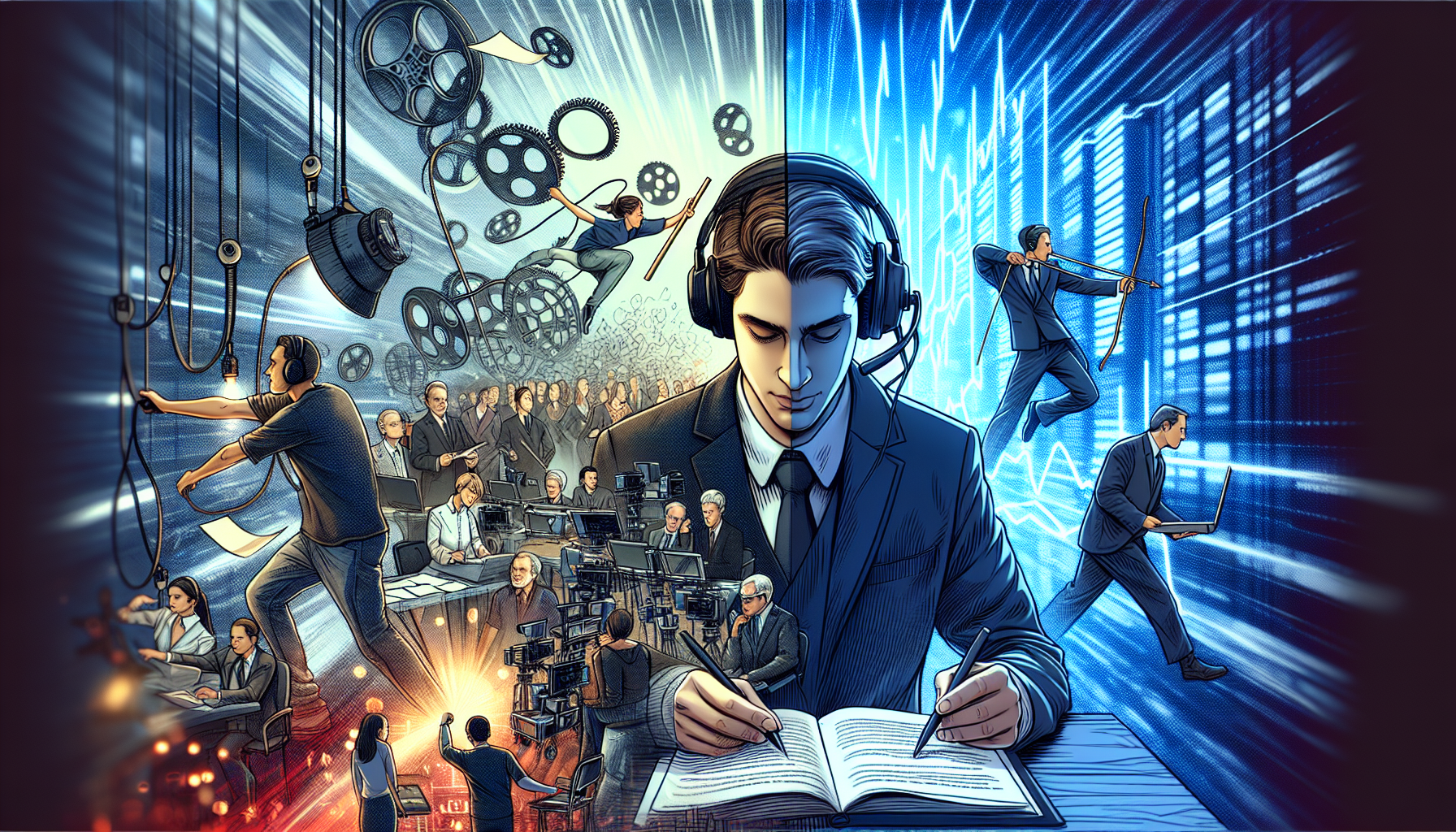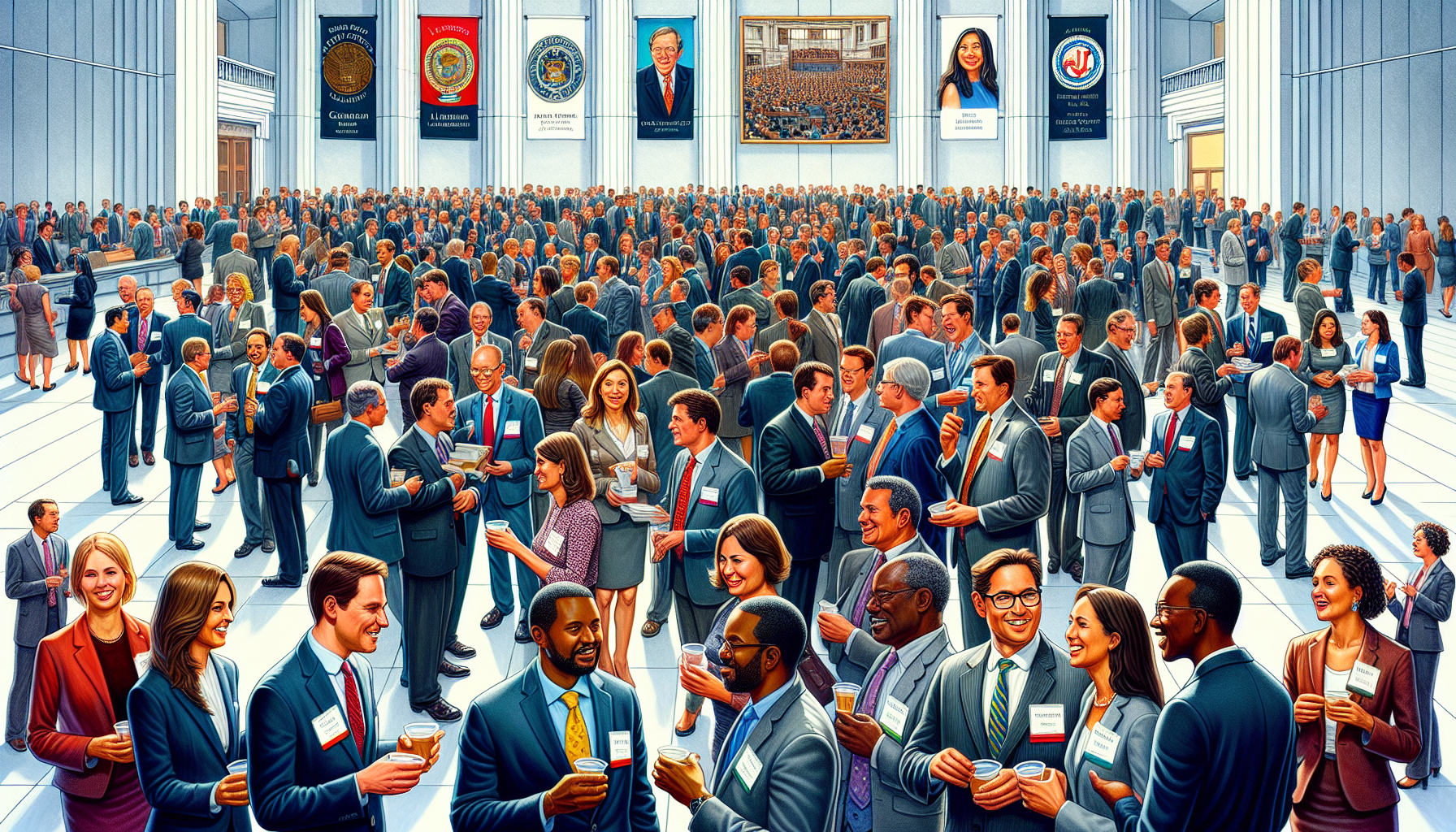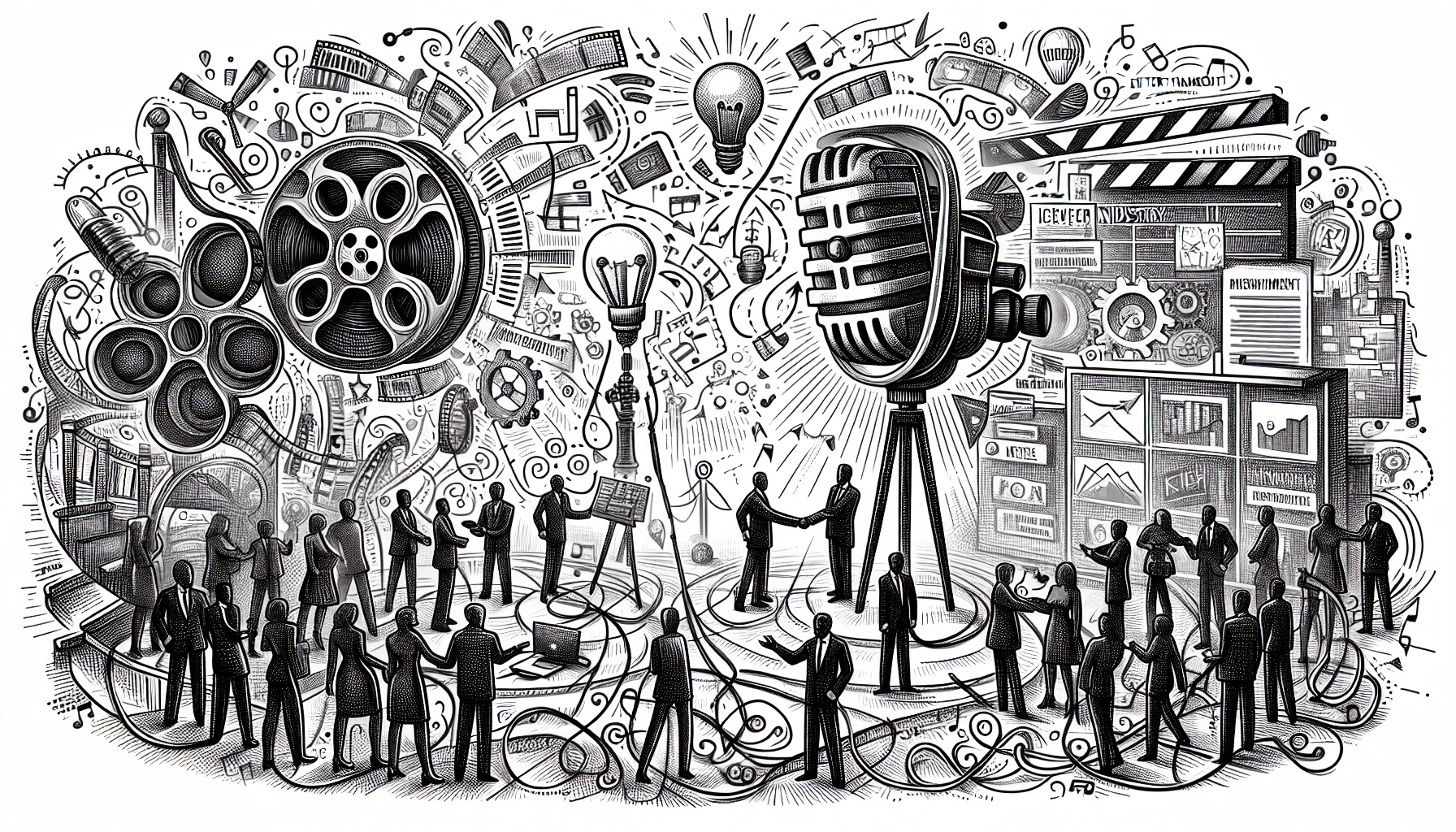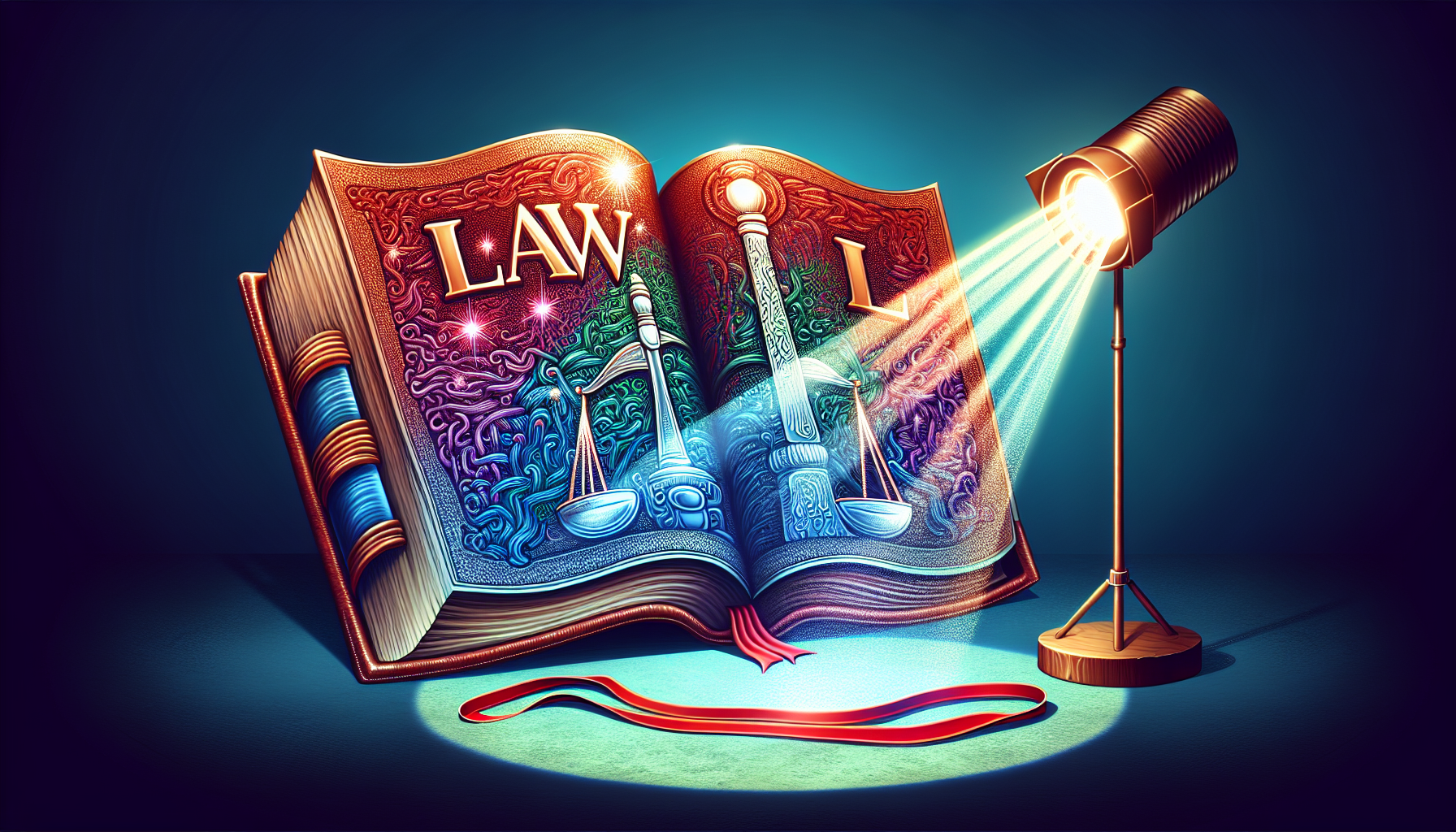Short Answer:
Entertainment law safeguards artists’ creations and guides companies through legal intricacies. It encompasses intellectual property, contract negotiations, and digital age compliance, providing essential protection and advice within the industry.
Introduction & Background
As a seasoned attorney with a rich background in both traditional finance and the rapidly evolving digital asset space, my journey through the legal realms of venture capital, M&A, and private equity has uniquely positioned me to navigate the multifaceted landscape of entertainment law. With a decade of experience that includes a significant tenure at prestigious law firms and a role as General Counsel for Grooveshark, where I managed multimillion-dollar litigations against major record labels, my insights into the complexities of entertainment law are deeply rooted in real-world challenges and triumphs. This foundation not only enhances my understanding of intellectual property protection, contract negotiation, and dispute resolution but also enriches my perspective on the digital transformations reshaping the industry.
The world of entertainment law, with its blend of glamour and legal intricacies, demands a versatile legal expertise that I have honed through years of practice and continuous learning. Having advised major DEX protocols and navigated the legalities of digital assets and cryptocurrency, my expertise extends to the digital copyright protection under the Digital Millennium Copyright Act, among other contemporary issues facing the entertainment industry.
This experience, coupled with my academic contributions as a visiting Professor teaching Entrepreneurial Law classes, equips me to offer nuanced advice that spans the breadth of entertainment law—from defending copyright infringements to negotiating contracts that not only protect the creative rights of artists but also ensure fair compensation and clarity of agreements in the rapidly changing digital age.
Key Takeaways
-
Entertainment law is multifaceted, involving intellectual property rights, contract negotiation, talent representation, and compliance with digital-age complexities such as online copyright protection.
-
Successful entertainment lawyers must combine technical legal skills with soft skills such as public speaking and networking, alongside specialized knowledge gained from courses in areas like finance and intellectual property law.
-
Building a career in entertainment law requires practical industry experience through internships and externships, networking, and staying informed about industry trends and legal developments to provide effective representation and advice.
Understanding Entertainment Law: Basics and Scope
Welcome to the world of entertainment law, a dynamic practice area encompassing:
- Intellectual property protection
- Contract negotiation and drafting
- Talent representation
- Litigation and legal action
- Dispute resolution
- Regulatory compliance
- Licensing
- Managing international legal considerations
Have you ever contemplated defending a pop star in a copyright lawsuit or negotiating a blockbuster film contract? In entertainment law, you can do all that and more.
Intellectual property rights in entertainment law safeguard the copyrights, trademarks, patents, and trade secrets of artists and companies. Take copyright law, for example. It grants exclusive rights to copyright holders, including reproduction of the work, distribution, making derivative works, and public performance or display, all under the protection of the Copyright Act. Now, imagine the intricacies involved in drafting contracts that define relationships and terms between artists, producers, distributors, and agents, all with a focus on fair compensation and clarity of agreements.
However, the advent of the digital age has complicated matters further. It’s introduced new challenges for entertainment law, including:
- digital copyright protection under the Digital Millennium Copyright Act
- privacy and data security
- digital distribution contracts
- content regulation
Hence, emphasis is placed on preventive measures and copyright law compliance to avoid potential legal ramifications of copyright infringement. Remember the time Disney fended off allegations of copyright infringement claims? That’s one fine example of the legal challenges entities in the entertainment industry may face.
Building a Solid Foundation: Key Courses and Skills
While comprehending the fundamentals and extent of entertainment law is essential, establishing a strong foundation for its practice is a different challenge altogether. And that begins with honing the right skills and taking the right courses. Finance, for instance, is a critical skill for entertainment lawyers, crucial in the management and growth of their practice.
But before you dive in, it’s important to have clear career objectives and align your skills with the role you aim to secure within the industry. Do you see yourself representing artists in high-stakes litigation? Or perhaps you’re more inclined towards negotiating contracts for film producers or music publishers?
Although technical skills hold significant importance, one should not underestimate the value of soft skills. Developing public speaking skills through activities such as speaking at industry events is beneficial for entertainment lawyers, enhancing their courtroom performance and overall communication. After all, the entertainment industry is as much about making compelling arguments in the courtroom as it is about engaging effectively with clients and industry stakeholders.
The Role of Networking in the Entertainment Industry

Moving on to engagement with industry stakeholders, networking is a critical aspect to discuss. It’s not just about rubbing shoulders with big names at glitzy events. It’s about building relationships, establishing trust, and positioning yourself as a trusted source of legal advice.
Whether you’re attending music industry events or engaging with influencers online, remember that every interaction is an opportunity to establish connections with key stakeholders – artists, producers, and directors. And when you become the go-to source for legal advice, you can facilitate introductions and collaborations between your clients and influential industry professionals.
However, networking is not a one-off event. It’s about building trust and showcasing your expertise through consistent interactions. The more you network, the better your chances of long-term success in the entertainment law sector. And what better way to gain practical experience in the industry than through internships and externships?
Internships and Externships: Gaining Practical Experience

For law students and recent graduates, internships and externships can act as gateways to the entertainment industry. Imagine the hands-on experience you can gain by interning at media companies such as MTV Networks or NBC Universal. Or how about a role as a contract administrator in an entertainment firm in Los Angeles? These opportunities can pave the way for advancement into legal roles within the entertainment industry.
While internships in entertainment companies offer valuable experience, those specifically within legal departments are more significant for law students seeking to gain practical legal knowledge and understanding of the industry. These experiences not only offer practical insights into the workings of entertainment law, but they can also help you build connections that could come in handy later in your career.
Simultaneously, as you gain hands-on experience, staying updated about industry trends and legal developments is vital. After all, the entertainment industry is always evolving, and as an entertainment lawyer, you need to stay on top of these changes.
Staying Informed: Keeping Up with Industry Trends and Legal Developments
Being informed extends beyond merely reading news or browsing social media. It’s about staying ahead of the curve, understanding the trends that are shaping the industry, and being aware of the latest legal developments. And one way to do that is by utilizing professional newsletters and trusted social media pages.
Take the example of Thomson Reuters’ AI e-newsletter. It offers monthly insights into artificial intelligence developments specifically in the legal industry. With AI becoming a hot topic in the legal world, staying knowledgeable about its applications and legal implications is crucial for entertainment law professionals.
Participation in industry events and conferences is another way to keep abreast of the latest trends and legal developments. It’s not just about absorbing information; it’s also about adapting to advancements. By adopting legal tech tools for various aspects of practice, entertainment lawyers can maintain efficiency and offer competitive services.
Speaking of participation, have you considered joining professional associations and attending events?
Joining Professional Associations and Attending Events

Participation in professional associations serves a purpose beyond enhancing your resume. It offers specialized forums to discuss and engage with legal topics pertinent to the industry, such as mechanical licensing and music-related legislations. It’s a chance to deepen your understanding of entertainment law, share your insights, and learn from others.
Events like the Entertainment & Technology Law Conference allow lawyers to network with influential players. And industry-specific programs such as WHO KNEW provide insights from music executives in a TED Talk-like environment. These platforms not only allow entertainment lawyers to demonstrate their expertise but also serve as platforms to increase their visibility within the legal community, thereby attracting potential clients and collaborations.
While professional growth and networking are important, entertainment lawyers also face their fair share of ethical challenges. Let’s delve into some of these challenges in the next section.
Navigating Ethical Challenges in Entertainment Law
Ethical challenges are not an uncommon phenomenon in the entertainment industry. And the COVID-19 pandemic has only added to these complexities, with significant medical and legal implications for:
- sporting events
- concerts
- trade shows
- live events
With the onset of the pandemic, attorneys advising clients on confidentiality issues became more complex, especially in the context of contractual disputes. Lawyers had to negotiate contract addendums related to cancellations and postponements while maintaining the confidentiality of health-related information.
Moreover, entertainment lawyers had to navigate potential conflicts of interest when representing multiple clients affected by COVID-19, ensuring equitable treatment while respecting fiduciary duties to each client. Navigating ethical challenges is just one aspect of an entertainment lawyer’s role. Another critical aspect is building a client base.
Building a Client Base: Marketing and Reputation Management

Establishing a client base within entertainment law is not solely about possessing legal skills. It involves effective marketing, reputation management, and providing outstanding, personalized service to clients. Creating a visually appealing company brand, along with consistent messaging across all marketing platforms, can firmly establish a law firm’s identity in the entertainment industry.
Specializing in a niche within entertainment law can refine marketing efforts, making them more effective by targeting a specific segment of the industry. But it’s not just about attracting new clients. Client retention is enhanced by providing outstanding service that emphasizes discretion, responsiveness, and personalized attention.
Entertainment lawyers can support their clients’ growth by leveraging their industry connections to provide opportunities that may not be available elsewhere. But don’t just take our word for it. Let’s look at some success stories of notable entertainment lawyers and their impact.
Success Stories: Notable Entertainment Lawyers and Their Impact
Numerous lawyers have left their mark in the realm of entertainment law through their significant contributions to high-stakes litigation and complex disputes. Take Scott Edelman and Orin Snyder, for example. They are part of a legal team that has successfully defended major clients, including NBCUniversal, Warner Bros., and Lady Gaga, showcasing the importance of experienced representation in high-stakes litigation within the entertainment industry.
Then there’s Patricia L. Glaser, who has represented high-profile figures such as Jeff Zucker and advised companies like Imax on complex disputes, demonstrating the crucial role entertainment lawyers play in legal battles over wrongful termination and breach-of-contract issues.
Dale Kinsella’s achievement in negotiating a $200 million settlement for Frank Darabont and CAA in their lawsuit against AMC over ‘The Walking Dead’ underscores entertainment lawyers’ ability to secure favorable outcomes in profit-participation disputes. And John Gatti’s successful representation of Tracy Chapman against rapper Nicki Minaj on a copyright infringement lawsuit filed in a California court has established important legal precedents, emphasizing the critical impact entertainment lawyers have on the protection of artists’ intellectual property rights and the importance of understanding important legal precedents.
However, success is not solely defined by winning cases and obtaining settlements in the district court. It’s also about balancing creativity and legal expertise, as demonstrated when a federal judge in the Supreme Court ruled in a complex legal battle.
Balancing Creativity and Legal Expertise
Building a credible practice in entertainment law requires a thorough understanding of the industry’s nuances and the adept application of legal principles to its ever-changing elements. But it’s not just about understanding the law. It’s also about understanding the creative aspects of the industry and finding a balance between creativity and legal expertise.
In the entertainment industry, agents and managers perform roles similar to those of entertainment lawyers by advocating for their clients, negotiating deals, and safeguarding their clients’ rights. This sets a precedent for the advocacy expected of legal experts in this sector.
Achieving a balance between creativity and legal expertise involves:
- Comprehending the artistic vision of clients
- Safeguarding their rights and interests simultaneously
- Thinking outside the box to find solutions that meet both legal and creative needs
- Continuously learning and adapting to the ever-changing landscape of the entertainment industry.
Summary
To sum it up, breaking into the business of entertainment law requires understanding its basics and scope, building a solid foundation of key skills, networking within the industry, gaining practical experience through internships and externships, staying informed about industry trends and legal developments, joining professional associations, navigating ethical challenges, building a client base, and balancing creativity with legal expertise. Remember, every great entertainment lawyer was once an aspiring lawyer like you. With the right mindset, skills, and opportunities, you too can make your mark in the world of entertainment law.
Frequently Asked Questions
What major is best for entertainment law?
Any pre-law major, such as political science, history, or English, is suitable for aspiring entertainment lawyers. These majors provide a strong foundation for a career in entertainment law.
What does entertainment law encompass?
Entertainment law encompasses a wide range of legal services, including intellectual property protection, contract negotiation, talent representation, litigation, regulatory compliance, licensing, and international legal considerations.
Why is networking crucial in the entertainment industry?
Networking is crucial in the entertainment industry because it helps professionals establish connections and become trusted sources of advice within the field. This can lead to valuable opportunities and partnerships.
Are internships and externships important for aspiring entertainment lawyers?
Yes, internships and externships are crucial for aspiring entertainment lawyers to gain practical experience in entertainment companies and legal departments.
How can entertainment lawyers stay informed about industry trends and legal developments?
Entertainment lawyers can stay informed about industry trends and legal developments by subscribing to professional newsletters, attending industry events, and using legal tech tools to their advantage. This will help them stay up-to-date and informed, giving them a competitive edge in their practice.



